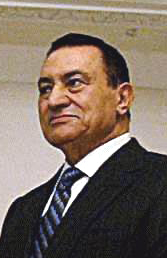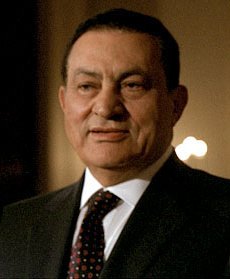 Image via WikipediaThe US is uniquely positioned to conclude the War On Terror in 2011. The Cold War lasted decades. If we play our cards right, the War On Terror will have only lasted a decade. And Barack Obama might qualify for yet another Nobel Peace Prize.
Image via WikipediaThe US is uniquely positioned to conclude the War On Terror in 2011. The Cold War lasted decades. If we play our cards right, the War On Terror will have only lasted a decade. And Barack Obama might qualify for yet another Nobel Peace Prize. The way the War On Terror concludes is when every Arab country has been turned into a modern democracy. The roadmap is simple. People come out into the streets and shut the country down completely until the dictator vacates the seat of power. They don't have to leave the country. They just have to vacate the seat of power without engaging in any bloodshed. Then an interim government takes over. That cabinet has one year to hold elections to a constituent assembly. And that's it.
Where the US federal government comes in is there is no other entity that has the option to stay deeply engaged with all levels of the state apparatus in these countries. The idea is to stay neutral politically in the beginning, but make sure there is no bloodshed. And then once the streets have boiled over and achieved tipping point, you call for the dictator's ouster in no unclear terms. You don't incite the street protests. You don't help escalate it. But once they hit that tipping point, you stand on the side of democracy. The clearer stand you take, less bloodshed there will be, and smoother the transitions will be in those countries.
This is not the time to stay neutral. Revolution is not a spectator sport, not for those braving the streets, not for the President Of The United States, not for the Vice President Of The United States, not for the US Secretary Of State.
This momentum that took centuries to build can not be wasted. This is our opportunity to turn the tables across the Arab world. If the sexism in the Arab world has been bothering you, now is the time to act. A country that becomes a democracy starts taking steps to curb all that sexism.
Egypt: The Army May Not Take Over
Arab Dictators Are Shaking
Egypt: A Revolution, Not A Reform Movement
How Many People Could Mubarak Kill?
Arab Dictators Will Fall Like A House Of Cards






